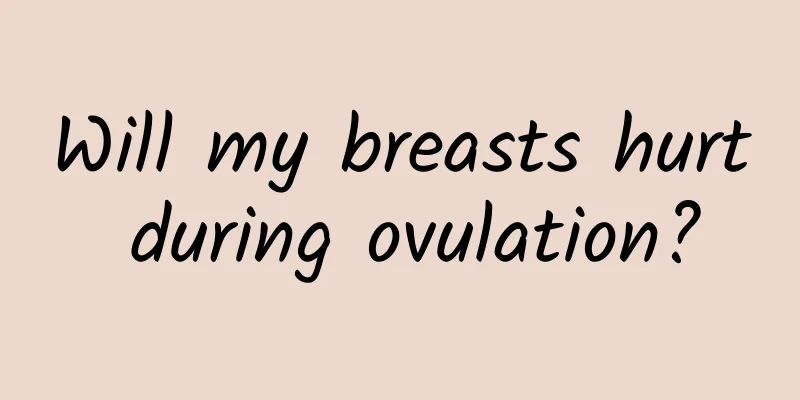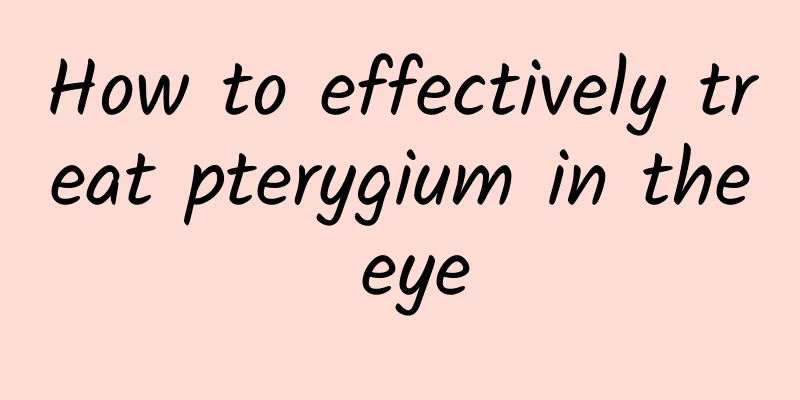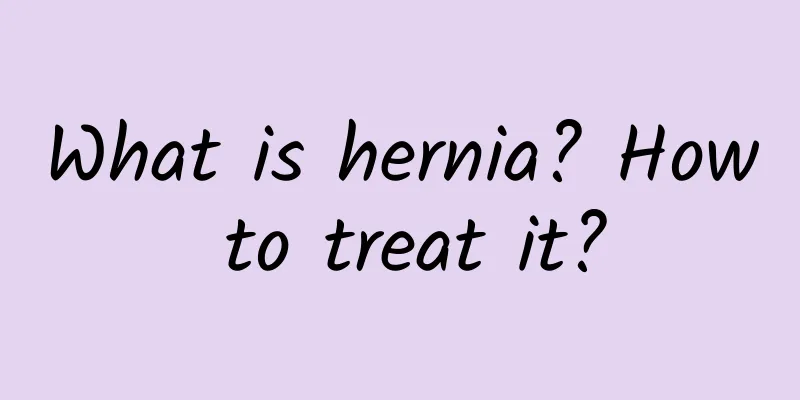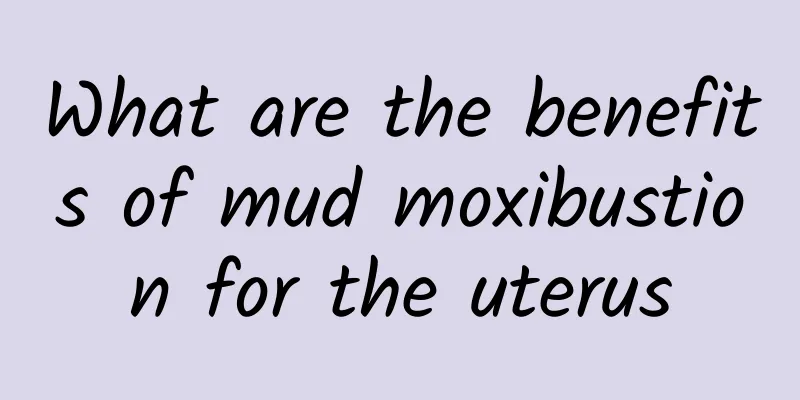Will my breasts hurt during ovulation?

|
Many female friends often experience breast pain on a daily basis, especially before and after menstruation, the breasts will feel very painful. So will the breasts hurt during ovulation? In fact, breast pain is prone to occur during ovulation. It is not just a few women who experience this. Most women now experience this, so female friends should take good care of their breasts. Many women experience breast swelling or nipple pain during ovulation, and sometimes the nipples are simply unable to be touched. The breast pain may also continue until the eve of the next menstrual period. If the underwear is too tight or ill-fitting, or you do a lot of exercise, friction may cause local pain. Excessive movements during sexual intercourse can damage the nipples and cause pain. The breast is the target organ of endocrine hormones, which means that under normal circumstances, that is, during endocrine changes in the menstrual cycle, breast tissue will be affected by endocrine hormones and undergo physiological changes. The breast will undergo cyclical proliferation and involution during the menstrual cycle, which manifests as fullness and mild pain in the breast before menstruation. The breast pain will be reduced or disappear after menstruation. This physiological change is a normal phenomenon for women of childbearing age, but the degree of breast pain varies from person to person. If this physiological proliferation exceeds a certain range or is incomplete, it will cause breast tissue hyperplasia over time, which is generally referred to as breast hyperplasia. It can be seen from this that breast hyperplasia is a benign proliferation and degeneration of breast tissue. In essence, it is neither inflammation nor a tumor. But clinically speaking, it is one of the common causes of breast pain in women. It is more common in young and middle-aged women. There is thickening of breast tissue in the upper outer part of the breast, which is soft and tough. Sometimes a lump with unclear boundaries is formed, but it rarely adheres to the surface skin and there is no enlarged axillary lymph nodes. Most of the time, it is bilateral. The pain can radiate to the armpits, shoulders, etc. The pain often eases after menstruation. It is generally believed that breast hyperplasia is caused by endocrine hormone imbalance and sex hormone metabolism disorder, which causes excessive estrogen secretion in the body, leading to physiological breast hyperplasia and incomplete involution. In addition, the liver's estrogen inactivation function is abnormal, so that excessive estrogen causes adverse stimulation to breast tissue and causes breast tissue proliferative lesions. Traditional Chinese medicine believes that breast hyperplasia is caused by emotional discomfort, liver qi stagnation, weak vital energy, and poor circulation of qi and blood, which lead to qi stagnation, phlegm coagulation, and blood stasis, which stagnate in the breasts and accumulate over time. Breast hyperplasia may become cancerous. Women suffering from breast hyperplasia should go to the hospital for treatment in time. In addition, there are many reasons for nipple pain, and patients should go to the hospital for examination in time. |
<<: Minor bleeding during breastfeeding
>>: I get hungry quickly during breastfeeding.
Recommend
What is herpes virus? Treatment of herpes virus
The more common herpes viruses are the herpes sim...
How long does it take for Chinese medicine to take effect?
We all know that Chinese medicine practitioners g...
Why is there a hard lump on the baby's buttocks that hurts so much?
If a hard lump grows on the baby's buttocks a...
How can a woman with a cold body lose weight?
Women with a cold constitution may also suffer fr...
What are the side effects of Budd-Chiari syndrome?
People's bodies are easily troubled by a vari...
How to get rid of the meat ball in the anus
The main cause of anal lumps is external hemorrho...
What should I do if my knee is dislocated?
If you encounter the problem of knee dislocation,...
Something is rolling in the ears
Occasionally, you may feel something shaking in y...
What is liver cyst?
Liver cyst is a common benign disease, which main...
What is the cause of infertility during ovulation?
Ovulation refers to the process in which the egg ...
Can onions cure athlete's foot?
Onion is a vegetable we often eat. Onion contains...
What should I do if my lumbar disc herniation compresses my nerves?
Lumbar disc herniation is a relatively stubborn l...
What causes back eczema?
Eczema is a typical skin disease that is widely d...
How to treat hemorrhoids with horse lettuce
Horse lettuce has the effect of cooling blood and...
What are the signs before your water breaks?
Before the water breaks, the pregnant woman will ...









